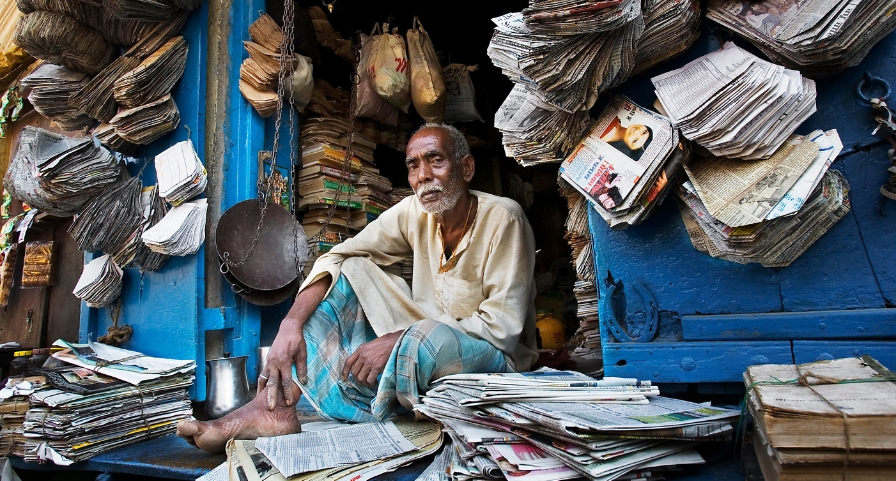Digital payments, e-receipts, and online submissions create the impression that the world is going paperless. I subscribed to the same notion until a few months ago. And then my son hit the exam mode. The printer at home whirred for days on end. To the point that it became white noise for us.
Rescript’s recycled paper uses 77% less energy, 50% less water, and emits 37% less carbon compared to traditional production methods. Since our inception, we have recycled up to 500 tonnes of paper and saved 9,200 trees.
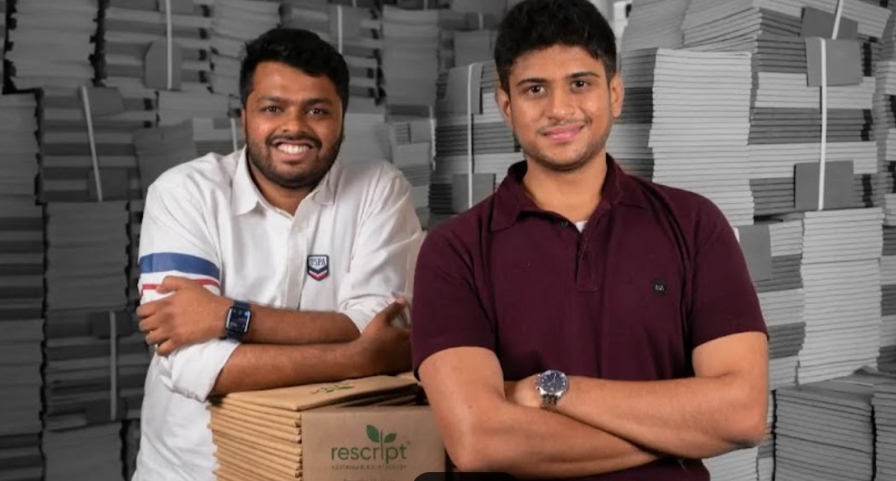
Eventually, the pile of discarded printouts, old textbooks and notebooks, literally, towered over me. I wondered if some of it could have been avoided. Just as I was hopelessly attempting to rationalise the pile of papers, the doorbell rang. In came a couple of cartons. The waste generated by my online orders had been a blind spot all along.
Recycled paper – an eco-friendly option
Luckily, today we can opt for papers that haven’t claimed a tree’s life.
Founded by childhood friends Ashutosh Ananth and Naren Raj CS in 2021, Bengaluru-based Rescript is one such brand that is helping consumers reduce their carbon footprint and promote sustainability by offering 100% recycled, eco-friendly range of copier paper, notebooks, planners, journals, Bond papers, pens, pencils, and more.
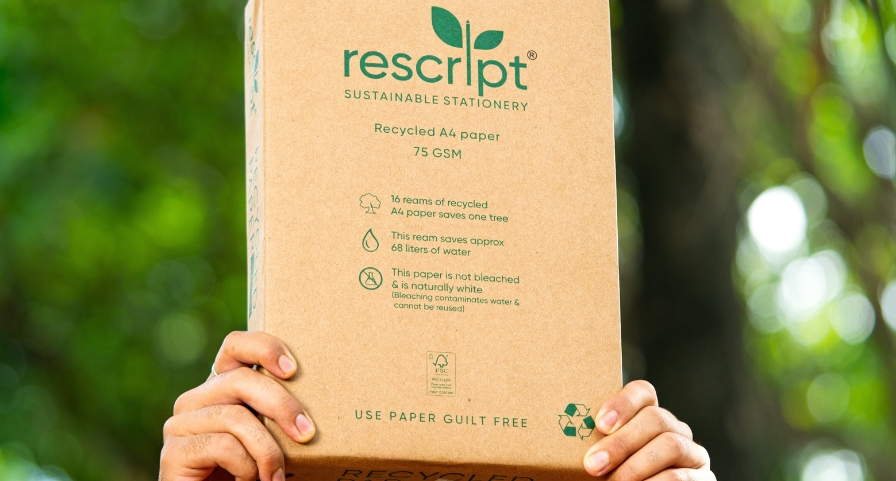
“Rescript is 100% recycled paper. We collect wastepaper, apply a stringent segregation method, and clean it before giving it new life. In terms of pricing, we have marked our eco-friendly products almost the same as regular paper. Even in terms of quality, they are just as good. The pricing and quality are motivated by our vision to make sustainability not an option but a norm,” shares Naren.
Scoring high on sustainability
Traditionally produced, a single A4 sheet of paper needs 10 litres of water. And those who are a stickler for the white colour of paper must note that 18 chemicals are used to whiten virgin paper. Interestingly, recycled paper is not the same as recyclable paper. The latter usually refers to paper that has been sourced through captive forests or social farm plantations.
“Rescript’s recycled paper uses 77% less energy, 50% less water, and emits 37% less carbon compared to traditional production methods. Since our inception, we have recycled up to 500 tonnes of paper and saved 9,200 trees,” shares Ananth.
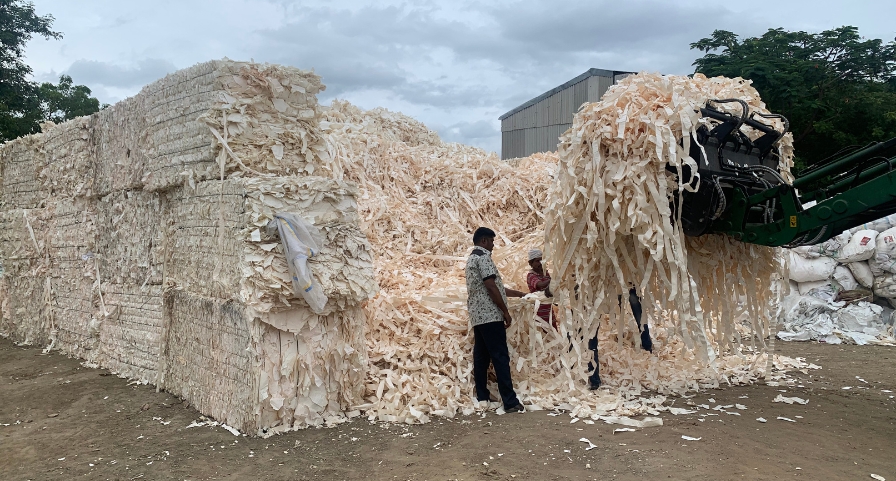
In absolute terms, the impact Rescript has delivered seems even more tangible, saving 18.4 million litres of water and 4,31,480 kg of CO2 emission. “Today we are one of the few suppliers of sustainable paper in the subcontinent. We are supplying to corporates including Hero Motocorp, Wipro, IOC, and Swiggy amongst others. We are also actively working with several schools including Meridian in Hyderabad, Whistling Woods International in Mumbai and Airaa Academy in Bengaluru,” he adds.
Identifying the problem
In the four decades spanning 1980-2020, the Indian pulp and paper industry has grown from a production of 1.7 million tonnes (MT) per annum to about 21.68 MT. However, compared to the developed countries, India only manages to recycle about 30% of the wastepaper that it generates.
The dismal figure is barely half the global average. In light of the massive needs of the recycling industry in India, this rate must be increased to reduce the country’s dependence on wastepaper imports. Improving the recovery rate of the wastepaper will not only enhance its circularity but also arrest deforestation.
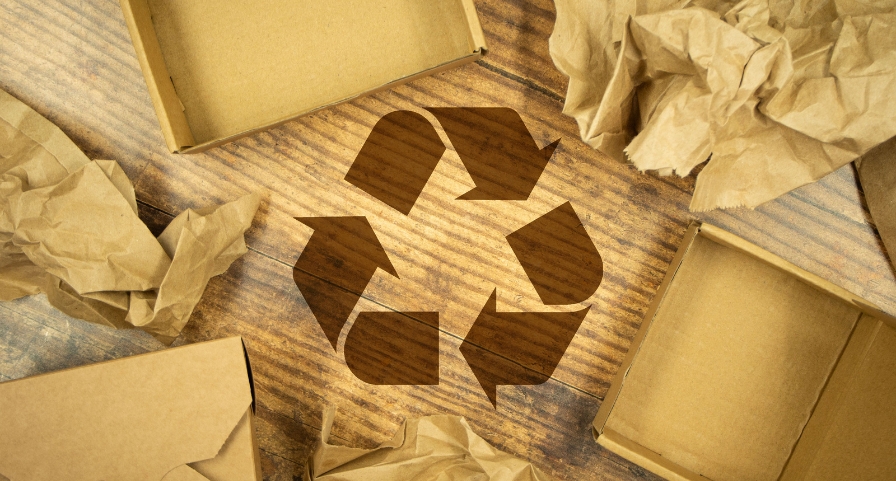
“Even after digitisation, paper consumption in India has been rising at the rate of 8%. As a country, we generate more than 72 lakh kilos of wastepaper that can be easily recycled five to seven times. We wanted to address the problems of virgin paper production head-on and leverage the abundance of global paper waste in India. Our biggest challenge today is to increase the quantity of recovered paper available to use in our paper mills,” shares Naren.
Promoting circularity
Paper and its associated waste products claim around 40% of the landfills. Recycling them can help save landfill space that can be devoted to other kinds of waste that cannot be actively recycled or reused. Thanks to Rescript, papers headed to the landfill are getting a new chance at life.
By opting for eco-friendly paper, we as consumers too can support the idea of a circular economy. At the end of the day, it is a matter of choice. Choices that will determine the future of our planet.
Kiran Yadav is a Delhi-based freelance journalist.
The lead picture on top shows a wastepaper vendor. India only manages to recycle about 30% of the wastepaper that it generates. (Photo courtesy: Wikimedia Commons)

